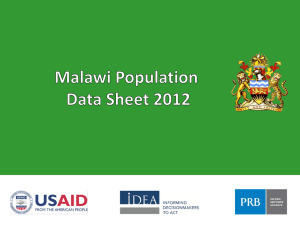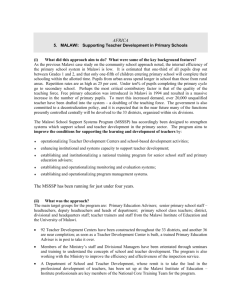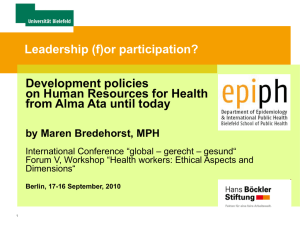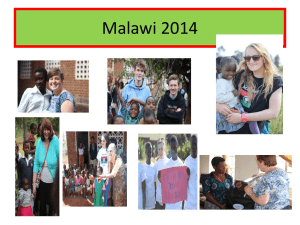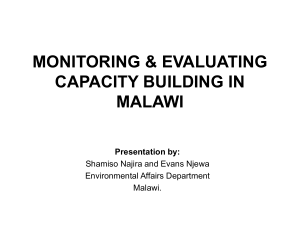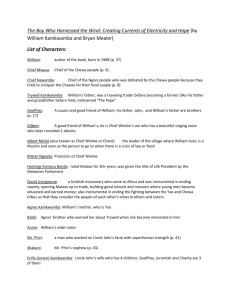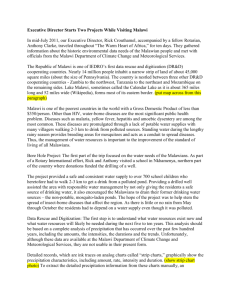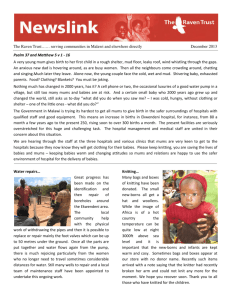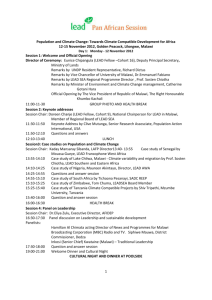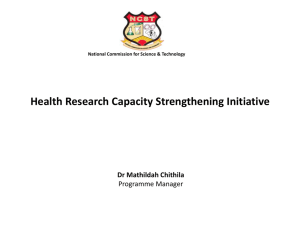Shrinking Civil Society Space A Case Study of Malawi
advertisement
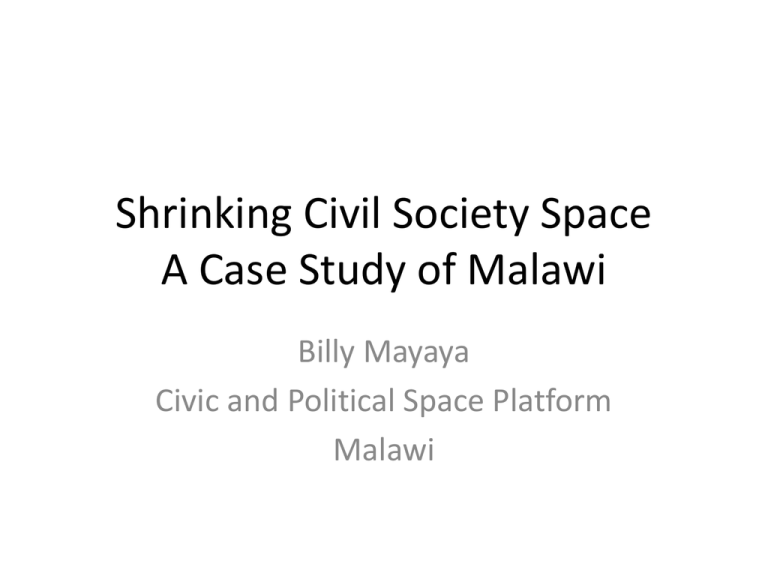
Shrinking Civil Society Space A Case Study of Malawi Billy Mayaya Civic and Political Space Platform Malawi What are the Issues? Repressive Bills/laws Compromised freedom of expression Lack of consultation on key issues Poor economic performance Absence of genuine dialogue Repressive laws: THE NGO ACT The Malawi Government continues to enact legislation targeted at shrinking the space of civil society. Chief among these is The NGO Act 2000 which stipulates that NGOs must apply to the Ministry under which their activities fall for recognition. It is becoming increasingly difficult to register new NGOs particularly those with a perceived ‘political’ agenda. A recent attempt to register an organisation called ‘The Centre for Federalism in Malawi’ was rejected for the following reasons: No sufficient reason was given of why issues of federalism affect Malawi. • The word ‘Malawi’ is a protected word and therefore requires the approval of the minister of Justice according to the law Repressive laws: THE POLICE ACT No demonstration or public rally can take place without notifying the Police or City Councils, both of whom can refuse to give consent The responsibility of any damage to property by rioters or looters is placed on the organisers of a demonstration In July 2011, the Police used live ammunition to quell nationwide demonstrations. 20 unarmed civilians were shot dead. The President labelled these as ‘looters’ and vowed not to allow any more demonstrations. In the aftermath, 3 human rights activists had their houses petrol bombed. All calls from civil society to investigate all cases of politically motivated violence have fallen on deaf ears. The Police say they do not have the capacity to investigate. A University student activist was murdered for criticising the current administration. Civil Society have been accused of colluding with the opposition to bring the government down Repressive laws: Threats of de-registration Human Rights organisations have been constantly under threat of deregistration for advocacy work that has been deemed critical of the Malawi Government. The Human Rights Consultative Committee (HRCC) is the largest network in Malawi with over 91 members. It has been threatened with deregistration for its advocacy work. This includes our call for Malawi to recognise LGBTI communities. We have been labelled enemies of Malawian cultural values and proponents of a gay agenda Calling on the President to explain his ill-gotten wealth Calling on the First Lady to do charitable work without being paid $10,000 a month of taxpayers’ money Compromised freedom of expression • Section 46 of the Penal Code empowers a Minister to close down or ban a publication • Presidential decree to deposit MK2,000,000 (76,000 Kroner) before demonstrating • Refusal to grant permission to demonstrate • Malawi Communication Regulatory Authority banned the private media from airing the events of the July 20 demonstrations • The absence of Local Government polls continues to shrink the political space for civil society to carry out Civic, Voter and Human Rights in order to help citizens internalise democratic values so that they can participate meaningfully in the political process. What can civil society do to engage positively in governance assessments? The civil and political space platform in Malawi has since 2009 been spearheading comprehensive reporting on the state of governance in Malawi. This approach covers political, economic, corporate and media governance. It would be ideal to augment this process with an annual SWOT analysis of civil society capacity to assess governance in light of the threat of shrinking political space. What do we need from our governments in order to be able to play our role in defending human rights and participate actively in governance assessments? We need an enabling environment in which a comprehensive governance assessment can take place. This can only be assured in a context in which pressure is consistently exered on governments to commit to international protocols, regional governance instruments and most importantly the local constitutional framework. RECOMMENDATIONS • Time for a UN Special Rappourteur on Civil Society? • Annual Civil Society Space Reporting – CIVICUS • Campaign to reverse retrogressive legislation (naming and shaming) • Global collaboration and monitoring of civil society space • Build capacity in awareness raising techniques


